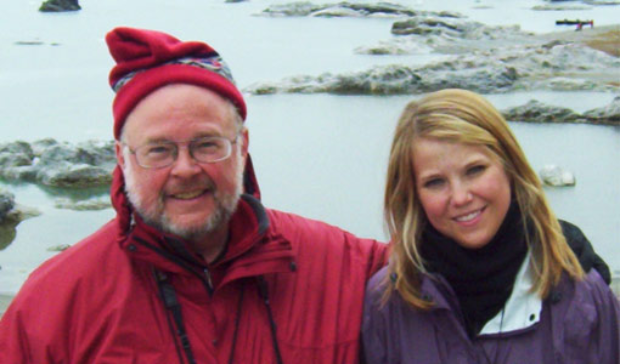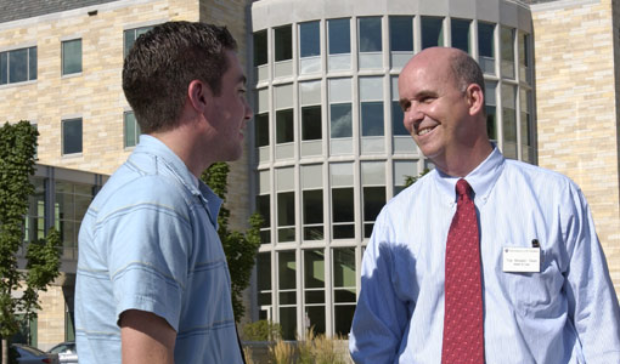Last July, my daughter, Kelly, and I found ourselves in an amazing and unexpected place – the Arctic. We were on an expedition to examine the impacts of climate change. The participants were impressive and diverse – former presidents and movie stars, senators and scientists, business and labor leaders, governors and entrepreneurs, and Kelly and me. This trip aboard the National Geographic Endeavour, sponsored by National Geographic and the Aspen Institute, inspired awe and urgency, built bridges and made connections, and was spiritually renewing and intellectually challenging. This 10-day journey to the top of the Earth brought us face to face with ways that climate change is literally changing our world and harming God’s creation.
I was invited because of my positions at the U.S. Conference of Catholic Bishops and with the National Religious Partnership for the Environment. On this privileged journey, I found my role was to raise a voice for the voiceless, not polar bears and sea creatures, but the poor and vulnerable in our nation and around the world. As I had testified before the Senate, “The real ‘inconvenient truth’ is that those who contribute least to climate change will be affected the most and have the least capacity to cope or escape. The poor and vulnerable are most likely to pay the price of inaction or unwise actions. We know from our everyday experience their lives, homes, children and work are most at risk.”
Although the poorest 1 billion people on Earth are responsible for producing just 3 percent of greenhouse gas emissions, they will bear the greatest burden of the impacts of climate change. According to the Intergovernmental Panel on Climate Change, increased drought, storm intensity, disease, species extinction and flooding will exacerbate the living conditions of people already living in poverty. Poor families and vulnerable workers in our own nation will likely be most affected by the impacts and costs of climate change.
After my brief presentation, a participant challenged my advocacy of this “priority for the poor” in responding to climate change. He challenged me and the Catholic Church on abortion and population, “you and your Church are the problem.” I responded (calmly, I hope) that my Church is not the problem, but part of the solution – serving the vulnerable in the poorest places on Earth and the poorest communities in our nation, educating young people and women, pursuing sustainable development and working for greater justice and peace. I pointed to the strong leadership of Pope Benedict XVI and the U.S. Catholic Bishops on the moral and ethical dimensions of climate change.
I pointed out, “the poor women and children of Bangladesh are not the problem. You and I are the problem. Our consumption and waste are at the core of climate change.” The Catholic Church and the religious community continue to be part of the solution, working to protect the poor as Congress debates climate change, and calling for restraint, moderation and sacrifice for the common good as we address its causes.This amazing expedition taught me a lot of things – about polar bears and frozen beauty I had never imagined and about real consequences of climate change in the Arctic and beyond. Most importantly, it reaffirmed the unique role and distinctive voice of the Catholic community to bring together the duty to care for God’s creation and the obligation to protect the poorest people on Earth as we face the urgent challenges of global climate change.
For more information about Catholic efforts to address climate change, visit www.catholicsandclimatechange.org and www.usccb.org/sdwp/ejp/climate/index.shtml.
Author: John Carr is the executive director of the Department of Justice, Peace and Human Development of the U.S. Catholic Conference of Bishops. He is a 1972 graduate of the University of St. Thomas and St. John Vianney Seminary. He serves on the Board of Governors of the St. Thomas School of Law. Kelly Carr graduated from St. Thomas in 2006 and works in the St. Thomas Office of Admissions.
Read more from St. Thomas Lawyer.





